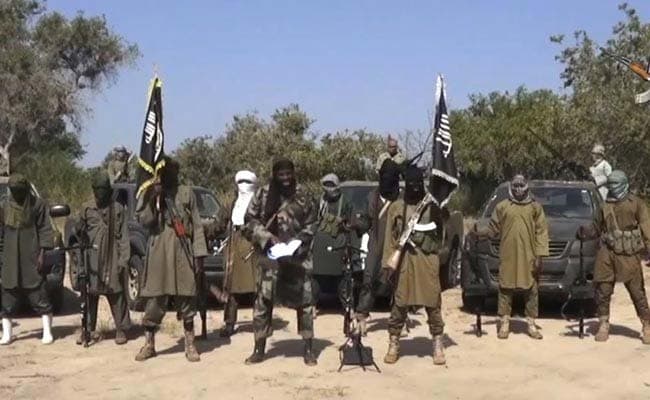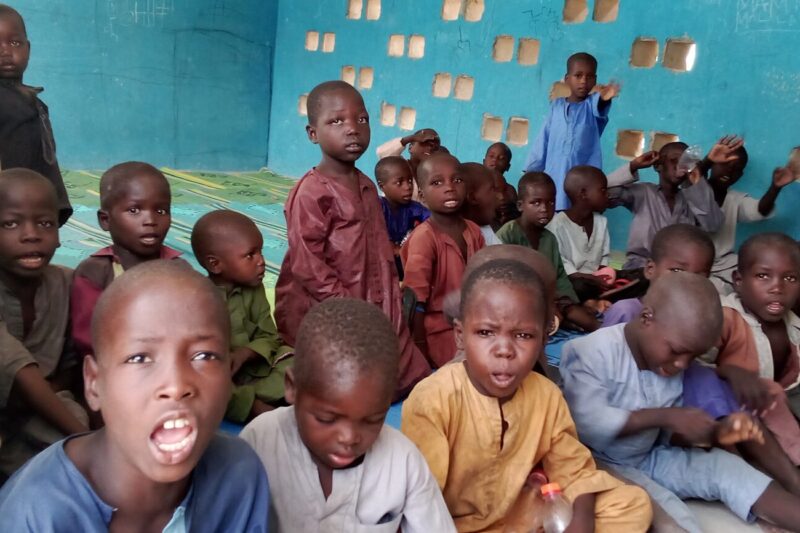Insurgents – believed to be members of the Jamā’at Ahl as-Sunnah lid-Da’way Wa’l-Jihād – kill three students and an undisclosed number in attacks in Yobe’s Tarmuwa and Geidam districts.
An as yet undisclosed number of people have been killed in a “devastating” insurgent attack on Sunday on Mafa village in Yobe State.
Deputy Superintendent Dungus Abdulkarim, the spokesperson for the Yobe State Police Command, told journalists that “many people” had been killed but the exact number of casualties was “still unknown”.
He confirmed that insurgents, suspected of being members of the Jamā’at Ahl as-Sunnah lid-Da’way Wa’l-Jihād (JAS), more commonly referred to as Boko Haram, stormed the remote village, arriving on more than 50 motorbikes, at about 4pm as residents were returning from their farms.
“We have yet to ascertain the number of lives lost in the incident,” Abdulkarim said. “Our men and military personnel are deployed to the village to restore peace. We are working to get the full details.”
Residents Babagana Goni and Bako Ibrahim reported the incident to the Tarmuwa Divisional Police Station.
One resident, who asked to remain anonymous, said he had seen more than 20 dead bodies.
“Boko Haram killed many people in the village, including underage [children], youths and elderly people.”
He said many residents of Mafa, a remote village in the Tarmuwa Local Government Area of Yobe State, were missing. Some had been killed and others had fled into the bushes, despite the deployment of extra security personnel.
The attackers looted and set ablaze shops, and burnt down schools and houses, leaving many homeless.
“Many people were shot as they fled into nearby bushes to escape the attackers.”
Witnesses said the insurgents were armed with rifles “and other deadly weapons”.
They described the attack as terrifying, saying they had not been through such a “devastating” attack since the peak of the insurgency.
The attackers left behind flyers with Arabic inscriptions.
In a separate incident, three students at the Islamic Faudiya School in the Geidam Local Government Area of Yobe State, were killed by suspected insurgents in an attack in the early hours of Friday, August 30.
Abdulkarim confirmed the attack on the school, which is linked to the Muslim Brotherhood Movement.
He said the students were asleep when the gunmen arrived at about 3.45am to 4am.
“When police received the distress call and rushed to the school, they discovered three students had been killed. One was wounded and is being treated at the Specialist Hospital in Geidam,” he said.
The dead students were identified as Muhammadu Saleh, 22, Ahmed Abdulrahman, 21, and Abdullahi Adamu, 21. Sani Haruna, 25, is being treated for wounds sustained in the attack.
Abdulkarim said the gunmen were suspected of being members of the JAS.
“We are still investigating to find out who the perpetrators were and why they attacked the school.”
He said the wounded student told him the gunmen arrived at the school on motorbikes, heavily armed with AK-47 rifles, at around 3.45am to 4am.
The school is a day and boarding school. The students were asleep when the attack occurred.
“The attackers came on motorcycles, about 10 of them, carrying deadly arms such as AK-47s.They were shooting haphazardly.
“The information we received was that the attackers invaded the school and told the students they were there to abduct them [and take them] to the forest where they would kill them. They decided to kill them on the spot to avoid the burden,” Abdulkarim said.
The attacks have raised concerns about the escalating violence in Yobe State and the ability of security forces to protect civilians.
Mafa village is close to the hometown of the late JAS leader, Abubakar Shekau, who killed himself on May 19, 2021, by detonating a suicide vest during a fight between the JAS and its breakaway group, the Islamic State West Africa Province (ISWAP).
SHETTIMA LAWAN MONGUNO








